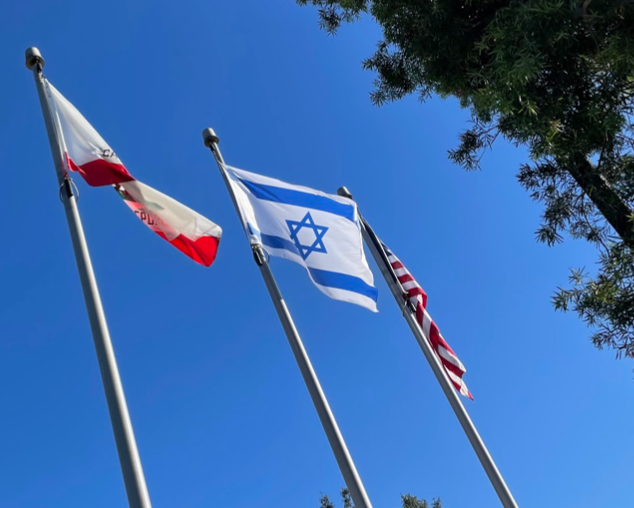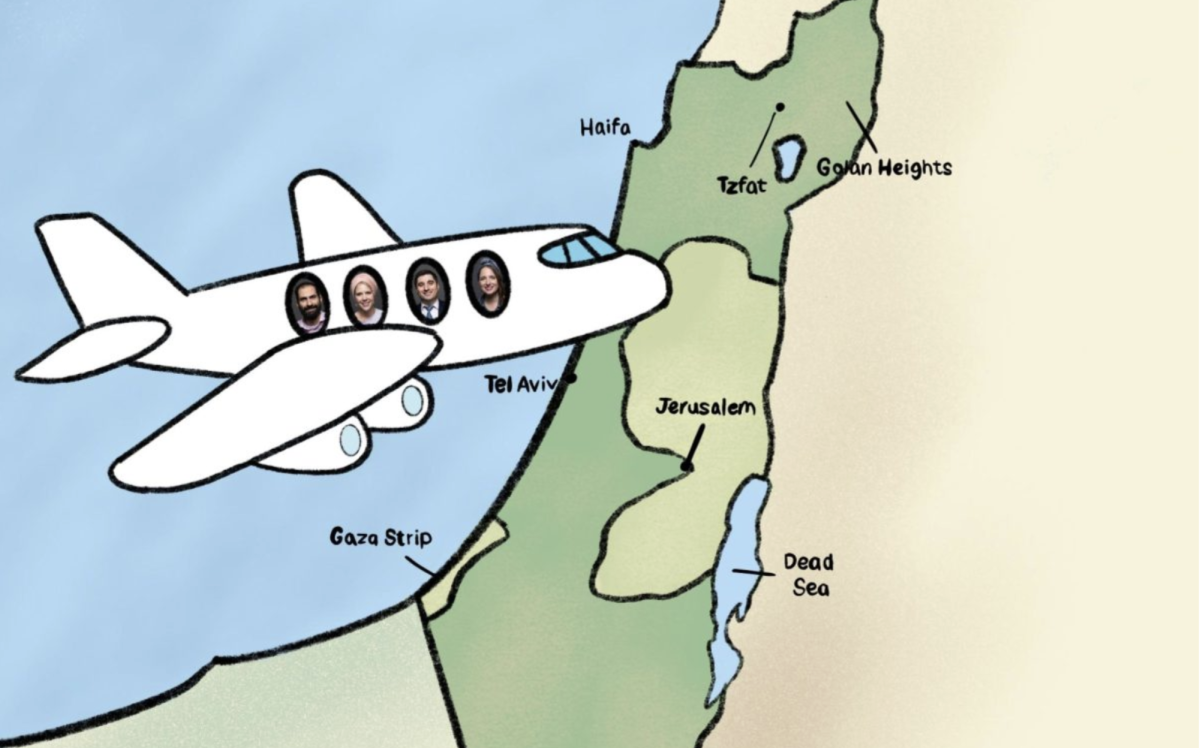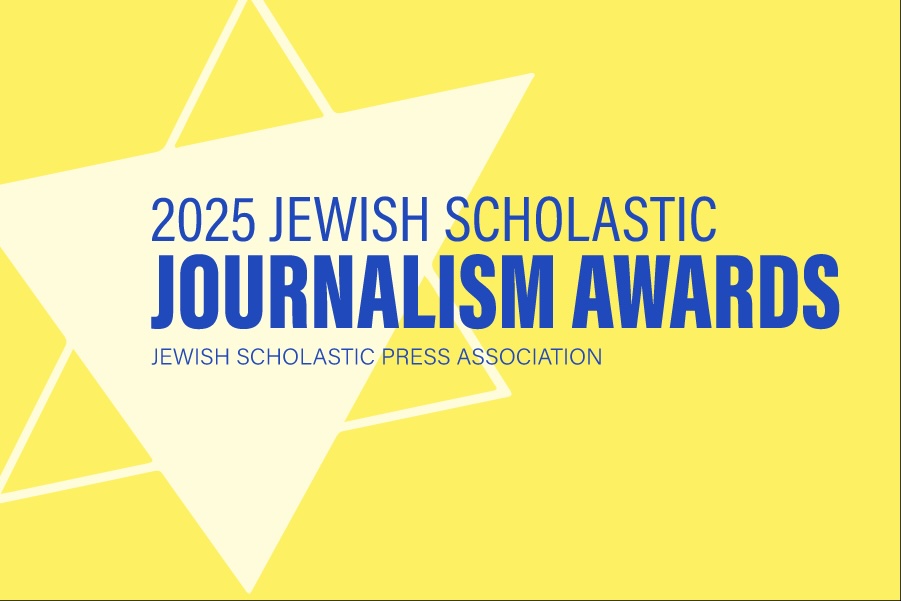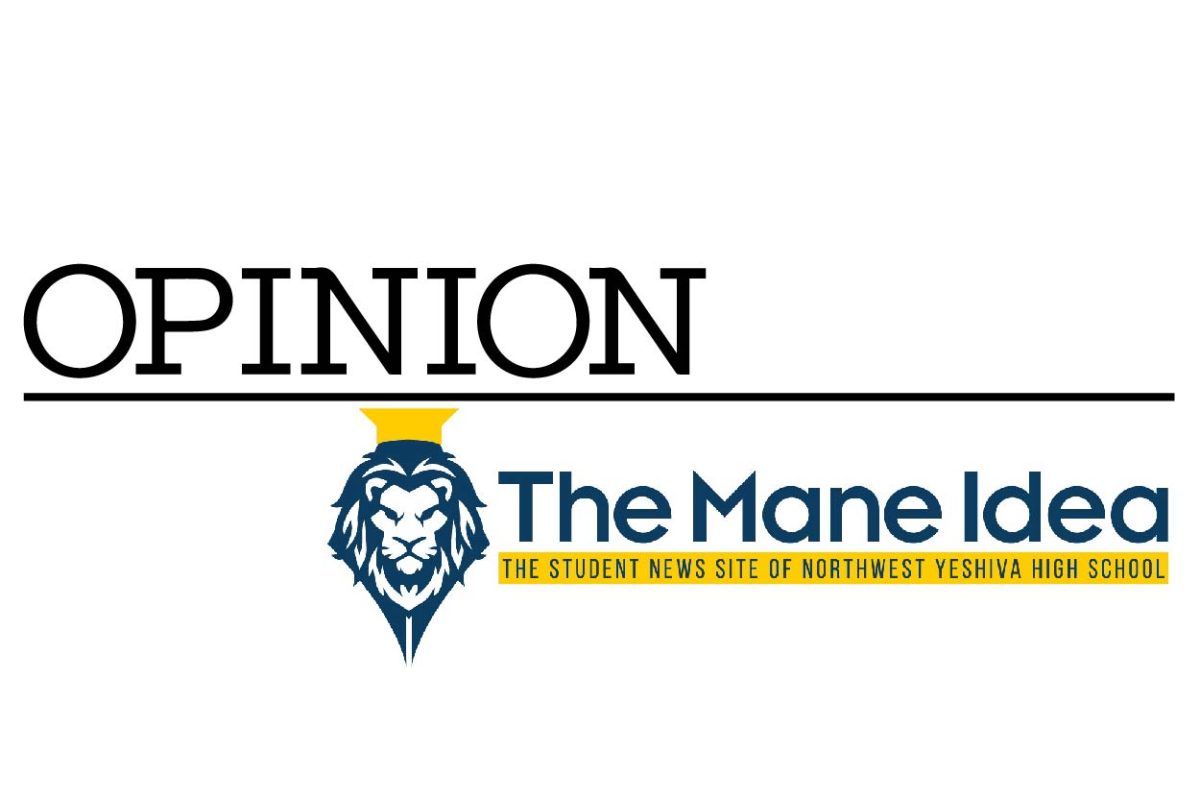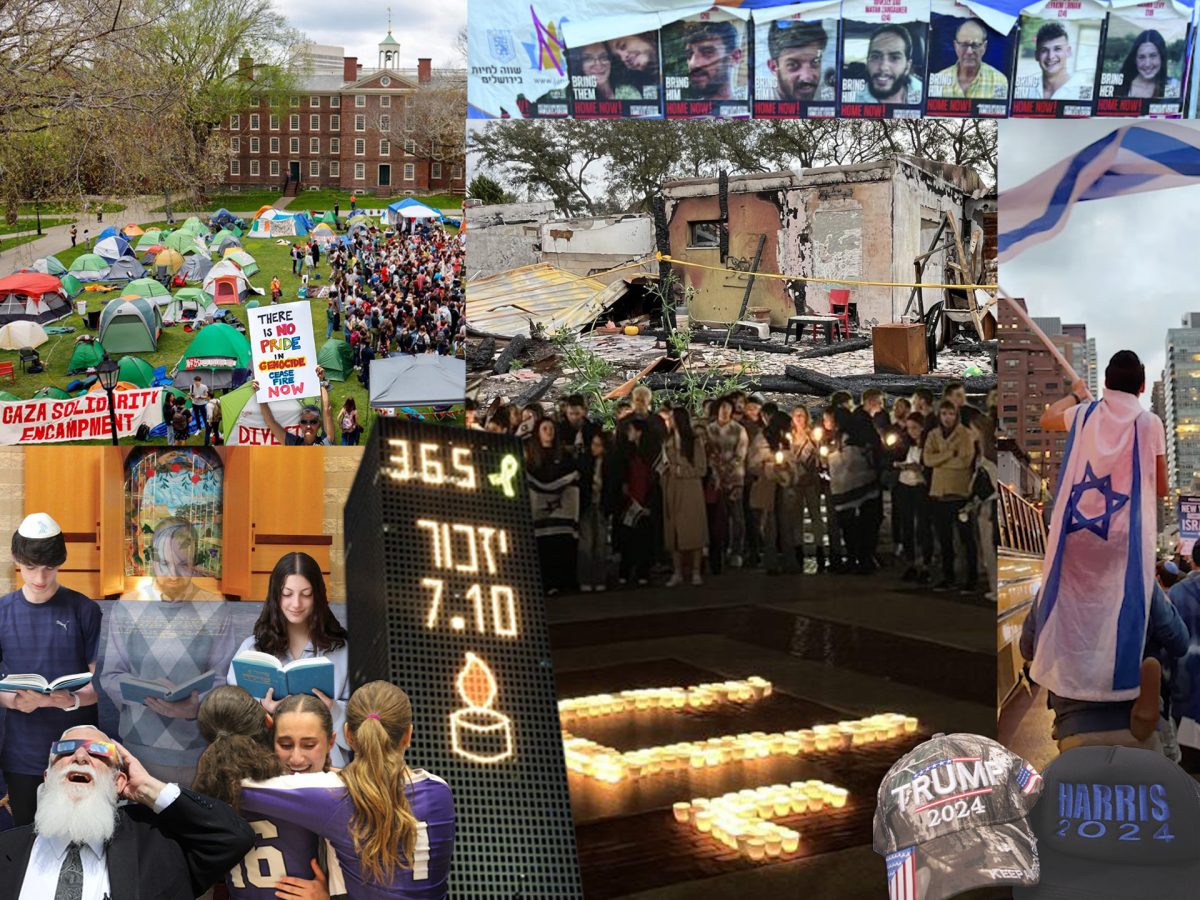Two years ago, while the class of 2023 was on Tiferet, missiles were coming in from Gaza and students were making comments about bombing or annexing any Palestinian land. They used language which characterized the conflict as Israel always being in the right and dehumanized Palestinians, denying a gray but rather seeing the world in black and white.
The Alexander Muss Israeli Studies teacher, Mr. Michael Sunshine, sat the students down and educated them through an hour-long discussion. “He taught us exactly what has gone on, the historical side, the Israeli side, the Palestinian side of the conflict,” explained Sara Goldin ‘23. “He goes: from here you make your own opinions.” But most of all, he enforced the message that although he lived through both intifadas and fought in one of them he remains firm in the belief that it must be acknowledged that at the end of the day Palestine may be Israel’s enemy but Palestinians are people, too.
This complexity of beliefs and maturity in view of conflict is a cornerstone of pluralistic education of Israel by a Jewish school. However, in order to truly understand how Milken interacts with Israel, one must first understand what it means for a Jewish school to be pluralistic. Jewish Pluralism or pluralistic Jewish education approaches diversity and differences as being positive and necessary, specifically different expressions of ways of Jewish life, practice and belief.
Ms. Isabella Teague, Milken’s Israel Programs Coordinator, believes Milken being pluralistic interacts directly with Zionism because it is a term which allows for pluralistic interpretations. Ms. Teague believes that regardless of the definition, Milken doesn’t force Zionist values onto students. While students may be asked to engage with the term, “[Zionism] is not preached,” she explains. To Ms. Teague, forcing the idea of Zionism is not conducive to an inclusive and pluralistic community.
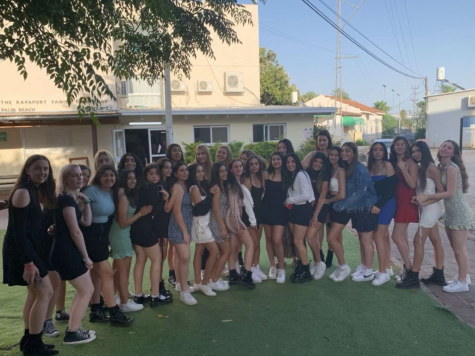
Two programs at Milken that allow 10th grade students to interact with Israel are Tiferet and the Robin Family Tiul. Both trips are run by the boarding school in Hod Hasharon, Israel, Alexander Muss. However, Tiferet is a semester in Israel which combines usual schooling with excursions, while the Robin Family Tiul is a two-to-three-week immersion program for the students not participating in Tiferet. These programs are a direct expression of Milken’s core value of “Connecting with Israel and the Jewish people.”
In 2018, the Head of School, the school board, faculty, students, parents, alumni parents and more were asked to advise on the new Milken mission and core values which would guide the Milken Community. They decided to rewrite the mission with the core values as its building blocks or underpinning. According to Dr. Sarah Shulkind, Milken Head of School, they chose words in the Hebrew that have “resonance over Jewish language and culture over time” yet were an aspiration. While for the English translation of the values, they chose something they felt every student would achieve by graduation.
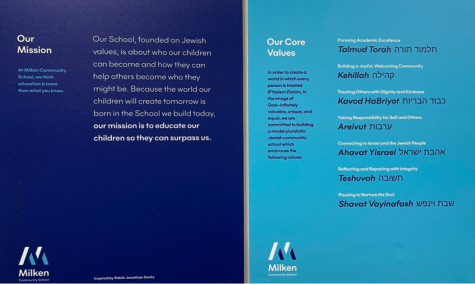
Dr. Shulkind says that it was always clear to them in the planning process that Israel would be a part of the core values. However, there was a large amount of debate over the translation of “Ahavat Israel” [commonly translated as love of Israel]. She says they debated “on whether to translate it as love or connection because the English translation we use is ‘Connecting to Israel and the Jewish People’ due to the way love will not always be a part of every student’s relationship with Israel.”
As a Milken parent, Dr. Sivan Zakai, Associate Professor of Jewish Education at Hebrew Union College, says she cares more about the value of “Yediat Israel” [knowledge of Israel]. She explained that this is a term that comes from the early Zionists pioneering Jewish education which focused on a knowledge of the land; however, nowadays includes a deep understanding of Israeli society, politics, culture and history and the role it has in diaspora Jewish life. As a professional, she has noticed that most schools have strategically decided to use vague umbrella language that can appeal to most of the community, however tells very little about what truly happens in the programs.
Hebrew Teacher, Ms. Pnina Benperlas, believes that “Ahavat Israel” and “Connecting with Israel and the Jewish people” are accurate translations. She explains why with an anecdote of how she “once met a Polish man and I asked him if he visits Poland. He answered ‘no, I didn’t leave anything there, I don’t care what happens there, I live here.’ But we have a connection to a different country and that is a wonderful feeling.” (Translated from Hebrew).
Connection and love are fitting according to Dr. Carmit Burstyn, Hebrew Instructional Leader, because when “we teach Hebrew in our classrooms, we are connecting our Hebrew to the Israel, to Zionism, to love of Israel, and we are doing this because we want that our students will be connected with Israel through Hebrew and in the process we tie it to Zionism through the culture and love of the land.”
Noa Debasc ‘23’ thinks “that what Milken is getting at in that translation is that engaging with Israel will make us love Israel. But I think they are not explicitly saying that because Israel is not perfect and people may engage with Israel and have problems with Israel.”
When asked if he believes “Connecting with Israel and the Jewish People” and “Ahavat Israel” are good words to use for the core values Yoni Becker ‘25 responded that “engaging with Israel is a better translation because nobody has, or should have, an unconditional love for any country…and so when people say Ahavat Israel what does that mean?” He believes that while Israel can be interpreted different ways in the manner it is written it caused him to read it as loving the country. He prefers for the core values to reflect the value of engaging with Israel rather than love or connecting because “it shouldn’t be a value to unconditionally love a complicated thing” and “it lacks nuance to assume that everyone connects with Israel.”
However, Dr. Shulkind does acknowledge that love for Israel is a more aspirational idea because “you can’t really control love and we wanted whatever we wrote to be something that we felt was within our power to actually execute on.” Connection is an idea that she feels is possible to guarantee for every graduate. She says that this is because the idea of connection “you can program around, build curricular standards around, bring speakers about.”
One such speaker that she brought in was Mr. Ben M. Freedman, author and educator, to speak to the 11/12 division on the topic of Jewish Pride after Ye’s repeated anti-Semitic comments. However, while most students reacted positively to his talk on the roots of anti-Semitisim and anti-Zionisim, many were heard remarking about how they felt it only represented one side of the story especially when Mr. Freedman referred to Israel as ““the biggest decolonization project in human history”. Ms. Guth remarked that students’ negative reaction could have been due to the way “he talked about that ancient connection to the land and that is undoubtedly true, Jews have always lived there, there has always been a connection between the Jewish people and the ancient land of Israel. But that leaves some things out like the fact that there have been and are other people, too. So I think it is a simplification and it is a simplification that makes his message [challenging for some students to hear].”
When choosing Milken’s core values, Dr. Shulkind, said it was really important for them to acknowledge that people won’t always love Israel and while they hoped that the students would feel many moments of love for Israel, they wanted to acknowledge that relationships evolve. “Sometimes what you feel might be connection but [it might be] questioning or inquiry or disappointment and we wanted to allow for students to walk away feeling that that was okay. A part of the reason what you see going on with people in their 20s and 30s is that their Jewish institutions told them that there was one way to think, that there was one way to be engaged, that there was one sort of narrative that they had to buy into and then there was a major revolt in the other direction.”
Dr. Shulkind is referencing the IfNotNow movement, a group of politically progressive American Jews who express frustration with the American Jewish establishment for not having taught more about Palestinian views and narratives of the conflict. A common phrase used by them is “you never told me” which is a critique of Jewish institutions like Jewish schools, Jewish youth movements and summer camps. In a study done by Dr. Zakai, she found that this phrase is being used by children as young as third grade about a wider array of politically contentious issues, beyond Palestinian narratives, “related to Israeli and Jewish society that children really wished that their parents and their teachers and their rabbis and their cantors talked to about.”
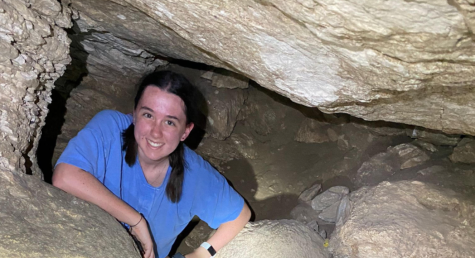
With the rise in anti-Zionism, anti-Semitisim, and movements similar to IfNotNow, there is a lot of attention on the way Milken engages with Israel and the topic of Zionisim. One way that Milken attempts to allow students to form their own opinions and learn more about Israel is through the 10th grade experiential learning experiences, Tiferet and the Robin Family Tiul. Ms. Teague feels that these opportunities allow students to engage with Israel and figure out what Israel means for them personally. However, the takeaways across the board she heard from Milken students who went on Tiferet is that “they really fell in love with the people and the land and they feel that they really have a better understanding of Israel. They’re still critical of Israel and the government and some of the choices it makes” which she strongly supports since she believes that blind love without constructive criticism is an “injustice to your own history.”
Another way Milken tries to prepare their students while allowing them to form their own conclusions is through the way Milken prepares students for college. Dr. Shulkind wants students to feel they have enough pride and knowledge to engage thoughtfully and confidently in all of the conversations that they will need to engage in. She believes Milken does this by “giving you the tools that you will need like understanding how you engage in constructive debate and how you understand what kinds of information and misinformation other groups have to engage in this information.”
A specific tool Milken tries to provide for students is the Israel Advocacy Leadership Circle with Mr. Gabriel Meyerson, Israel Education Coordinator, and Ms. Sarah Farkas, 11/12 Division Director of Academic Support. Debasc is a member of the group of 13 students funded by a generous alumnus. DeBasc said, “Our goal is to educate ourselves the best way we can so that when we step onto college campuses next year we are prepared to deal with the inevitable anti-Semitisim, anti-Israel sentiment, and such.” Over the course of the next year, they will meet with speakers, read different definitions of commonly used terms such as Zionisim, and debate topics such as is anti-Zionism always anti-Semitism. Finally, they will create a reflection site of their work and then conclude with an additional seven days in Israel after participating in March of the Living.
This story originally appeared in The Milken Roar on Feb. 8, 2023.
